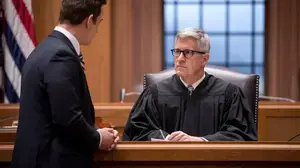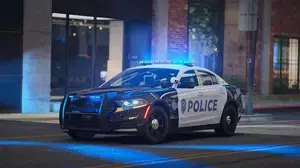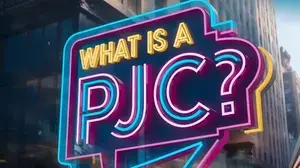What is a Prayer for Judgment Continued?
 A Prayer for Judgment Continued, commonly known as a PJC in North Carolina, is a somewhat unique legal mechanism that can be quite helpful if you’ve received a traffic ticket or other moving violation.
A Prayer for Judgment Continued, commonly known as a PJC in North Carolina, is a somewhat unique legal mechanism that can be quite helpful if you’ve received a traffic ticket or other moving violation.
In some instances, it can prevent the issuance of insurance points and motor vehicle points from being placed on your driving record. At the same time, the law regarding a prayer for judgment can be relatively complicated and confusing if you’re unfamiliar with the nuances of the court system.
"A Prayer for Judgment Continued can be deceptively complicated. It’s not automatic. You’re not guaranteed a PJC, and contrary to what some think, they don’t help in every situation."
- Bill Powers, Traffic Ticket Lawyer in Mecklenburg County NC
A PJC comes with specific rules, applications, and limitations that can be challenging to navigate.
Please keep reading for a comprehensive overview of Prayer for Judgment Continued, exploring its uses, restrictions, and potential impact.
If you're facing a traffic violation or another eligible offense in Mecklenburg County, North Carolina, understanding what is a Prayer for Judgment Continue is an important first step.
Understanding the Basics of a Prayer for Judgment ContinuedA Prayer for Judgment Continued, commonly known as a PJC, can be a way for the Court (the Judge) to withhold entering a final judgment in a case, even after a defendant has been found guilty or has pleaded guilty to certain types of traffic tickets and criminal charges.
This concept might seem unusual to those unfamiliar with North Carolina law, and indeed, it's a practice that's rare or non-existent in many other states.
When a judge grants a PJC or “continues judgment,” they're essentially putting the final judgment on hold.
This doesn't mean the case is dismissed or that the defendant has been found not guilty. Instead, it's a middle ground where the Court acknowledges the offense but chooses not to immediately impose a sentence or enter a final judgment.
What You Need to Know About Tickets in Charlotte
The origins of the PJC lie in the common law, and it has evolved over time through both statutory changes and court decisions.
It's important to understand that a PJC is not a right, but rather a discretionary tool that judges can use in certain circumstances.
The decision to grant a PJC rests entirely with the presiding judge, and they are not obligated to offer this option even if a defendant requests it.
One key aspect of PJCs that often confuses people is that they can serve different purposes depending on the situation.
In some cases, a PJC might be used to postpone sentencing to a later date, perhaps to allow time for the completion of a program or to gather more information.
In other instances, particularly with minor traffic tickets, a PJC might be granted with the understanding that no further action will be taken unless the defendant commits another offense.
While PJCs can be beneficial in many situations, they're not a magic solution to legal troubles.
As we delve deeper into the specifics of a Prayer for Judgment, it's important to keep in mind that each case is unique, and the application of a PJC can vary depending on the circumstances of the offense and the discretion of the court.
Types of Cases Eligible for a PJC in North CarolinaWhile Prayer for Judgment Continued is a versatile legal tool in North Carolina, it's not available for every type of case. Understanding which offenses are eligible for a PJC is essential for anyone considering this option.
Traffic violations are among the most common types of cases where PJCs are used.
For minor traffic tickets like speeding (within certain limits), running a stop sign, or improper lane changes, a PJC can be a valuable option.
It can potentially help drivers avoid points on their license or increases in insurance premiums. However, it's important to note that there are limits to how many PJCs an individual can use for traffic offenses within a certain time period.
Some misdemeanor criminal offenses may also be eligible for a PJC.
These might include relatively minor misdemeanor charges or disorderly conduct. The Court may consider the severity of the offense and whether the defendant has a prior criminal record.
However, there are notable exceptions where PJCs are explicitly prohibited by law.
For instance, North Carolina statutes do not allow PJCs for driving while impaired (DWI) offenses. The law recognizes the seriousness of impaired driving and mandates specific punishments for these offenses.
Similarly, PJCs are not permitted for speeding violations where the driver was going more than 25 mph over the posted speed limit. This restriction underscores North Carolina’s view on excessive speeding as a serious traffic violation that requires standard sentencing.
Another important exception is for the offense of passing a stopped school bus. Given the potential danger to children, the legislature has determined that this violation is too serious to qualify for a PJC.
CDL drivers also aren’t eligible for the relief available upon the entry of a Prayer for Judgment Continued.
On the other hand, a PJC may be entered on two rather serious misdemeanor charges, those being Boating While Impaired and Misdemeanor Death by Vehicle. Clearly, it should not be assumed that the Court will in fact agree to a Prayer for Judgment on either.
For more serious felony offenses, the use of PJCs becomes more complex and restricted.
Again, it’s worth noting that even for eligible offenses, the granting of a PJC is never guaranteed.
Judges consider various factors, including the nature of the offense, the defendant's criminal history, and the specific circumstances of the case. In some instances, a judge might determine that standard sentencing is more appropriate, even if a PJC is technically an option.
Understanding these eligibility criteria and exceptions is important when considering a PJC as a potential legal strategy.
The nuances of which cases qualify for a PJC and which don't underscore the complexity of this legal mechanism and highlight why it's often beneficial to consult with a legal professional when navigating these waters.
Procedural Considerations and Limitations of PJCsThe process of obtaining and maintaining a Prayer for Judgment Continued involves several procedural considerations and limitations that are important to understand. These factors can significantly impact the effectiveness and long-term implications of a PJC in North Carolina.
Revoked or Suspended? We May Be Able to Help
First and foremost, it's helpful to recognize that a PJC is not automatically granted upon request. In most cases, the defendant or their attorney must specifically ask the court for a PJC. This request is typically made after a finding of guilt, whether through a plea or a trial verdict. The judge then has the discretion to grant or deny the request based on the circumstances of the case and any relevant legal guidelines.
If a PJC is granted, it's important to understand what this means procedurally.
In essence, the Court is agreeing to withhold entering a final judgment in the case.
However, this doesn't mean the case is closed or that the defendant has been absolved of responsibility. The guilty plea or verdict still stands; it's just that the Court is choosing not to immediately impose a sentence or enter a final judgment.
A key procedural aspect of a Prayer for Judgment is that a PJC cannot include conditions beyond the payment of court costs.
 If a judge imposes additional conditions such as community service or other requirements, this generally converts the PJC into a final judgment, negating its intended purpose.
If a judge imposes additional conditions such as community service or other requirements, this generally converts the PJC into a final judgment, negating its intended purpose.
It's important to understand that a true PJC should not come with such additional conditions.
There are also important limitations to consider when it comes to PJCs. For instance, in traffic cases, an individual is typically limited to one PJC per household over an established time period for insurance purposes.
This means that if you've already used a PJC with the requisite time frame, or if someone in your household has, you might not be eligible for another one for a traffic ticket.
It's also important to note that a PJC is not the same as having a case dismissed or expunged.
The offense still appears on your record, and in some contexts, it may be treated as a conviction.
This can have implications for background checks, professional licensing, and other situations where your criminal record may be reviewed.
Hit and Run Charges in Charlotte?
Furthermore, while a PJC can often help avoid certain immediate consequences of a conviction, it doesn't always provide protection from all potential repercussions.
For instance, even with the entry of a PJC in court, certain offenses might still trigger license suspensions or other administrative actions by NC DMV if disallowed.
Understanding these procedural considerations and limitations is important when considering a Prayer for Judgment. The complexities involved make clear why we think it’s a good idea to have legal representation when navigating this process. An experienced attorney can help explain these nuances, advocate for a PJC when appropriate, and help ensure that all aspects of the Prayer for Judgment are understood.
Legal Effects and Consequences of a PJCThe legal effects and consequences of a Prayer for Judgment Continued can be complex and far-reaching.
It's important to understand that while a PJC can offer certain benefits, it's not without its own set of potential drawbacks and considerations.
One of the primary benefits of a PJC, particularly in traffic cases, is its potential impact on insurance rates and driver's license points.
In some instances, a PJC can prevent the addition of points to your driving record and/or can help avoid increases in insurance premiums.
This can be a significant advantage, especially for those who rely heavily on driving for work or personal reasons.
Out of State Driver: What You Need to Know about North Carolina
However, it's important to understand that a PJC is not always recognized by the North Carolina Division of Motor Vehicles (NCDMV) in the same way it might be by the courts or insurance companies.
In some cases, the NCDMV may still assess points or take administrative action based on the underlying offense, even if a PJC was granted in court.
From a criminal law perspective, the effects of a PJC can be somewhat ambiguous.
While a PJC is not technically a "conviction" in the traditional sense, it's not the same as having a case dismissed either.
In some contexts, especially for the purposes of criminal history, a PJC may be treated similarly to a conviction when calculating a PRL - Prior Record Level.
This distinction becomes particularly important when considering the impact on a person's criminal record.
A PJC will typically still appear on a criminal background check.
This means that even though you may have avoided some immediate consequences, the underlying charge could still be visible to potential employers or others who conduct background checks.
In the context of repeat offenses, a PJC can have mixed implications.
On one hand, it might help avoid some of the immediate consequences of a first offense.
On the other hand, if you're charged with a similar offense in the future, the existence of a prior PJC could potentially be considered by the Court, even though it's not technically a conviction.
It's also worth noting that the effects of a PJC can vary depending on the specific type of offense.
For instance, while a PJC for a minor traffic ticket might have relatively limited consequences beyond the immediate case, a PJC for a more serious misdemeanor could have broader implications, particularly if the defendant is involved in certain professions or seeking specific types of employment or licensure.
What is Following Too Closely?
Another important consideration is the effect of a PJC on plea bargaining and future legal proceedings.
In some cases, having a PJC on your record might influence how prosecutors or judges approach future cases involving you.
While it's not the same as having a prior conviction, it does indicate a previous interaction with the legal system that could be taken into account.
It's also important to understand that once a PJC is entered, it generally cannot be expunged or removed from your record.
This permanence means that the decision to accept a PJC should be made carefully, with full consideration of both short-term and long-term implications.
Mecklenburg Traffic Ticket FAQs
Given these varied and sometimes complex effects, we think it’s smart to consult with a legal professional when considering a PJC.
Our Charlotte lawyers can help weigh the potential benefits against the possible drawbacks, taking into account your specific circumstances and long-term goals.
Common Misconceptions About Prayer for Judgment Continued Prayer for Judgment Continued, while a valuable legal tool in North Carolina, is often misunderstood.
Prayer for Judgment Continued, while a valuable legal tool in North Carolina, is often misunderstood.
These misconceptions can lead to unrealistic expectations or misguided decisions. Let's address some of the most common misunderstandings about PJCs.
One prevalent misconception is that a PJC is the same as having a case dismissed.
This is not accurate.
When a judge grants a PJC, the underlying guilty plea or verdict remains.
The Court (the Judge) is simply choosing not to enter a final judgment at that time.
Unlike a dismissal, which effectively ends the case, a PJC leaves the matter open, potentially subject to future action by the Court.
Another common misbelief is that a PJC completely erases an offense from one's record.
In reality, the charge and the PJC disposition typically remain visible on criminal background checks and/or NC DMV record abstracts.
While a PJC can help avoid some consequences of a conviction, it doesn't remove the incident from your record entirely.
Many people also mistakenly believe that they're entitled to a PJC or that it's automatically granted upon request.
In fact, the decision to grant a PJC is entirely at the discretion of the judge.
There's no guarantee that a request for a PJC will be approved, even if the offense is generally eligible for one.
Here’s What You Need to Know About Stop Sign Tickets
There's also a misconception that a PJC can be used multiple times without limitation.
In reality, there are restrictions on how frequently PJCs can be used, especially for traffic tickets.
Some people think that a PJC protects them from all consequences of an offense. However, this isn't always the case.
For example, certain professional licensing boards or educational institutions might still consider a PJC in their decision-making processes, even though it's not technically a conviction.
And, given continuing prayer for judgment is somewhat unique to North Carolina, it’s all too often not understood by anyone outside North Carolina.
Another misunderstanding relates to the finality of a PJC.
Some people think that once a PJC is granted, the matter is closed forever. In reality, the Court retains the right to enter a final judgment at a later date under certain circumstances.
There's also confusion about the effect of a PJC on license points and insurance rates.
While a PJC can help avoid certain consequences, it's not guaranteed.
The North Carolina Department of Transportation / Division of Motor Vehicles may still assess points in some cases, and insurance companies are subject to the North Carolina insurance laws regarding PJCs.
Some people mistakenly believe that a PJC is available for all types of offenses. In fact, there are some criminal charges, particularly more serious ones, for which a PJC is not an option.
Understanding these limitations is important when considering legal strategies.
Lastly, there's a misconception that handling a PJC is simple and doesn't require legal assistance.
Given the complexities and potential long-term implications of a PJC, we think it’s a good idea to consult with an attorney who can provide guidance based on your specific situation.
Understanding these common misconceptions is important for anyone considering or facing the possibility of a PJC.
It highlights the complexity of this legal mechanism and underscores why informed decision-making is so important in these situations.
If you have a pending traffic ticket in Charlotte, North Carolina and are considering your options, including the possibility of a Prayer for Judgment Continued, the Powers Law Firm in Charlotte, Mecklenburg County, would like to help. You can reach us at 704-342-4357 to discuss your specific situation and explore the most appropriate course of action for your case.
Helpful Information About Criminal Charges Powers Law Firm PA Home
Powers Law Firm PA Home


















